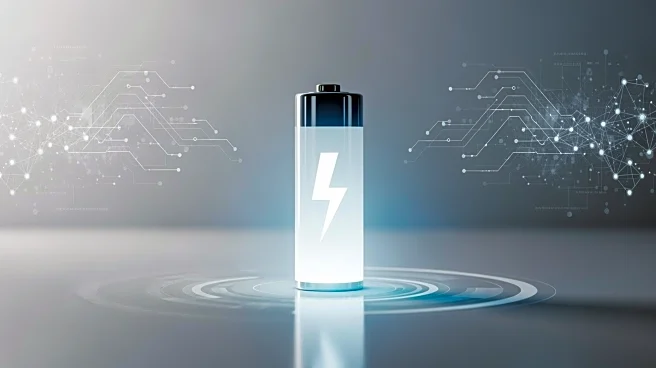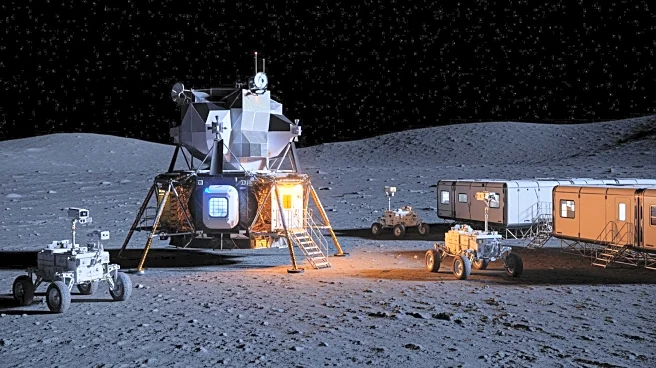What's Happening?
Bolivia's newly elected president, Rodrigo Paz, is generating cautious optimism regarding the country's lithium sector, which has been stagnant due to political and legal hurdles. Bolivia, possessing the world's largest lithium reserves, has struggled
to attract international investment due to a law mandating state control over lithium extraction. This law has deterred investors, both locally and internationally. Under the previous administration, deals with Chinese and Russian companies were blocked, and Paz has indicated he will review these contracts for transparency. Despite focusing his campaign on other priorities, such as decentralizing government and maintaining social programs, Paz's centrist stance is seen as potentially beneficial for fostering stability and attracting investment. Analysts suggest that his ability to engage with both left and right political factions could lead to a more investor-friendly environment.
Why It's Important?
The potential shift in Bolivia's lithium policy under President Paz is significant for the global lithium market, particularly as demand for electric vehicle batteries continues to rise. The U.S. sees an opportunity to increase its influence in the critical minerals sector, countering China's dominance. If Bolivia can overcome its legal and technical challenges, it could become a key player in the lithium market, benefiting both smaller companies looking to test new technologies and larger firms capable of managing risks. However, the uncertainty surrounding the modification of the state control law and the potential annulment of existing contracts with China and Russia could create investor apprehension. The outcome of these developments could have far-reaching implications for global supply chains and geopolitical dynamics in the critical minerals sector.
What's Next?
President Paz is expected to take office on November 8, and his initial actions will be closely monitored by the global mining community. His party does not hold a majority in the legislature, which could either facilitate or hinder the passage of more investor-friendly regulations. The U.S. has expressed interest in bilateral investment opportunities, and companies are eager to see if Paz will provide the regulatory stability and transparency needed to unlock Bolivia's vast lithium potential. The decisions made in the coming months will be crucial in determining whether Bolivia can capitalize on its lithium resources and attract the necessary foreign investment.
Beyond the Headlines
The ethical and cultural dimensions of lithium extraction in Bolivia are significant, as the Uyuni salt flat, a major lithium deposit, is a symbol of national sovereignty and Indigenous heritage. President Paz has vowed not to 'sell out' this region, highlighting the need to balance economic development with cultural preservation. Additionally, the potential annulment of contracts with China and Russia raises questions about Bolivia's long-term strategic partnerships and its role in the global geopolitical landscape. The outcome of these developments could influence Bolivia's economic trajectory and its relationships with major global powers.















